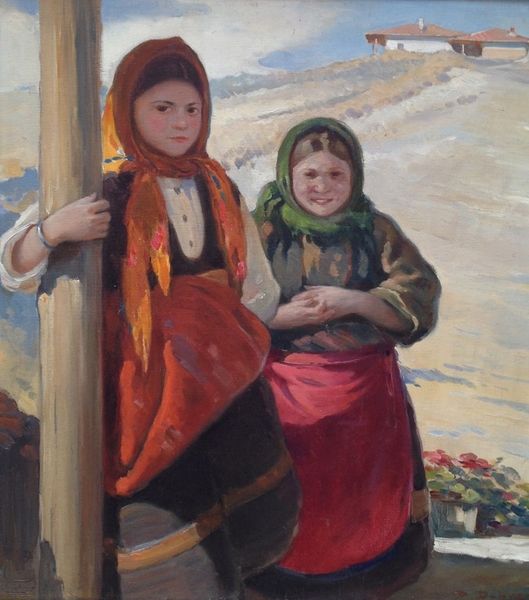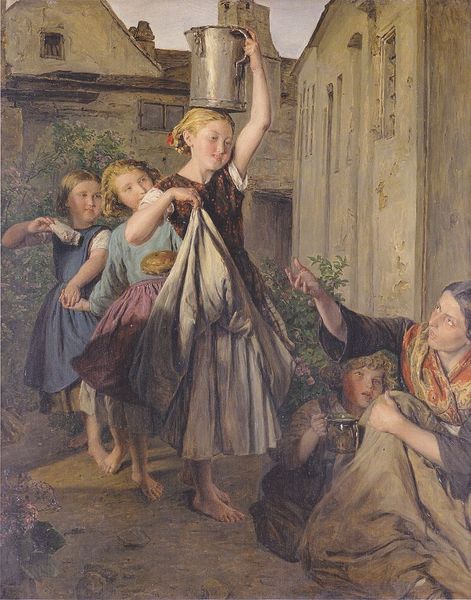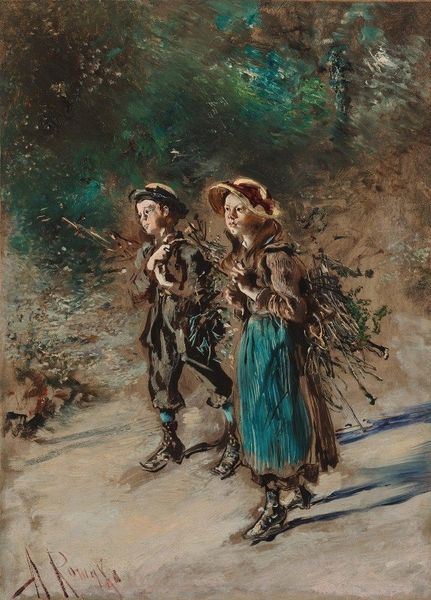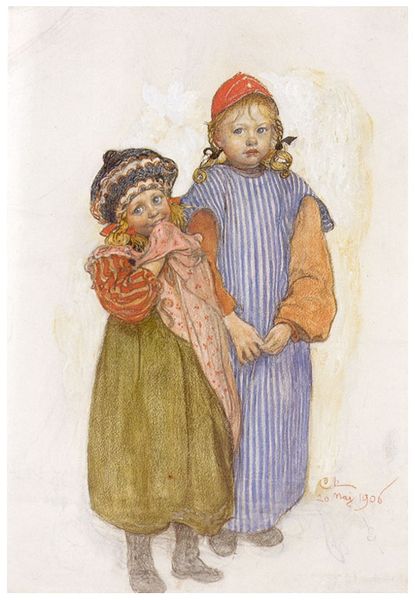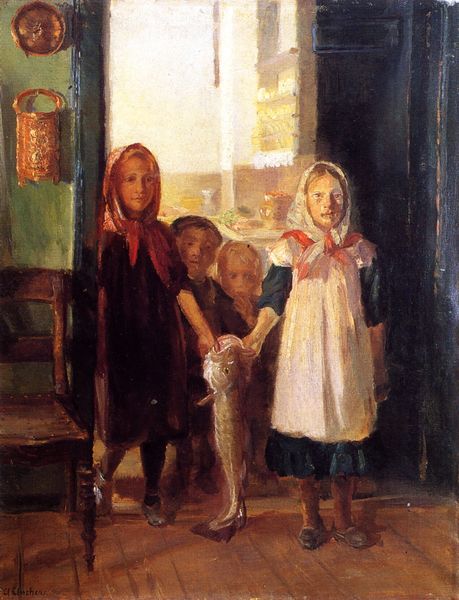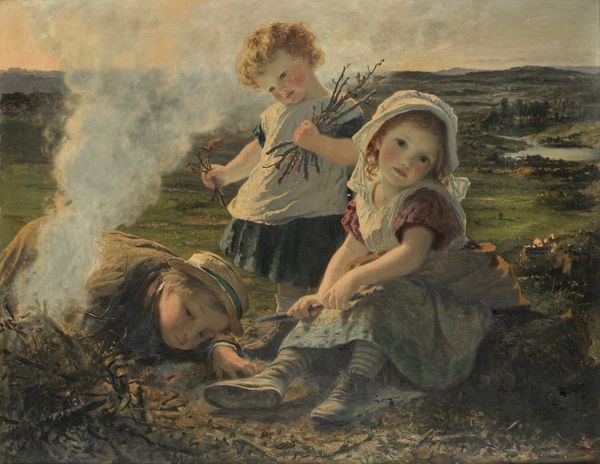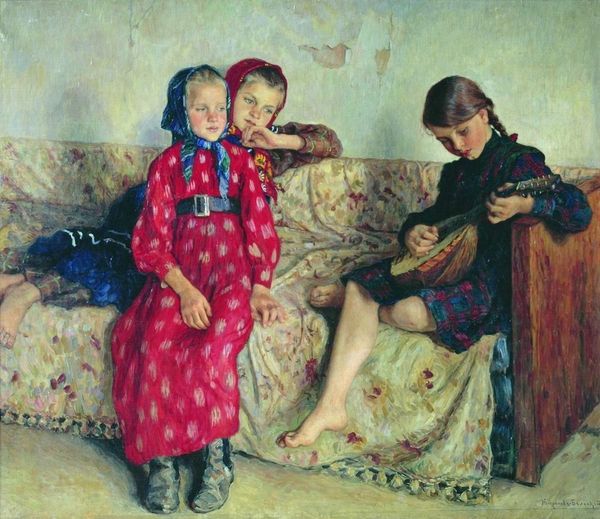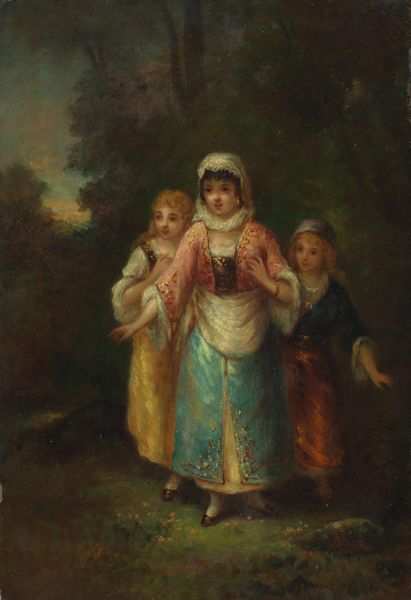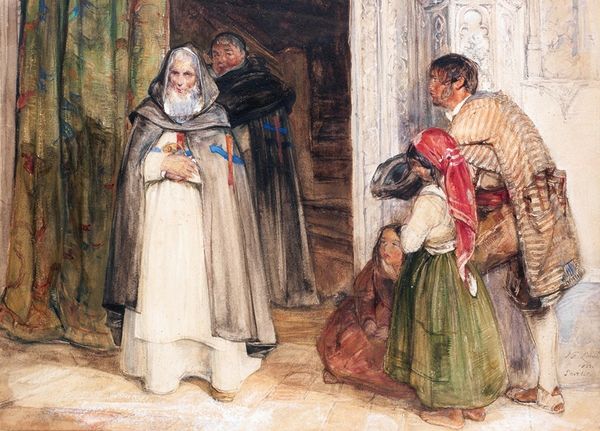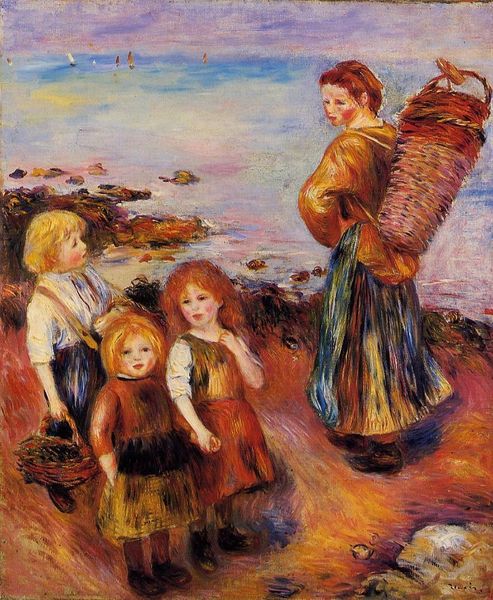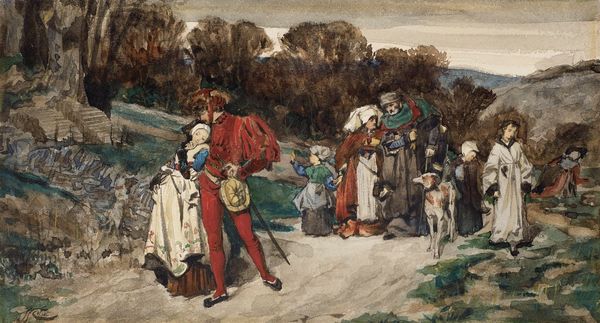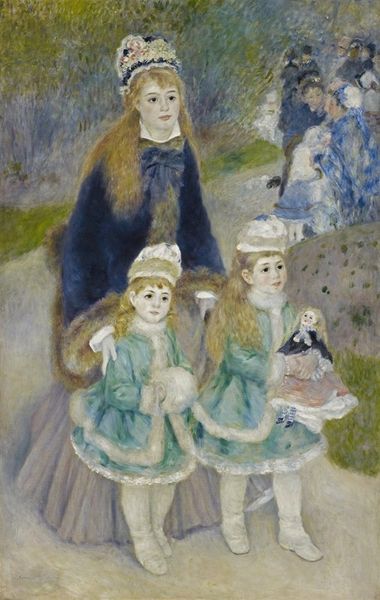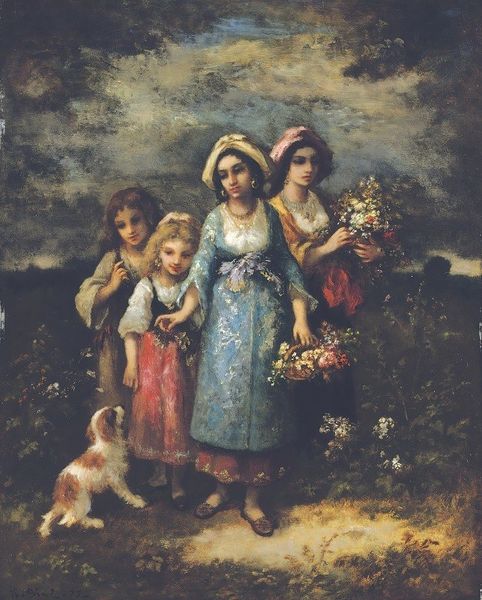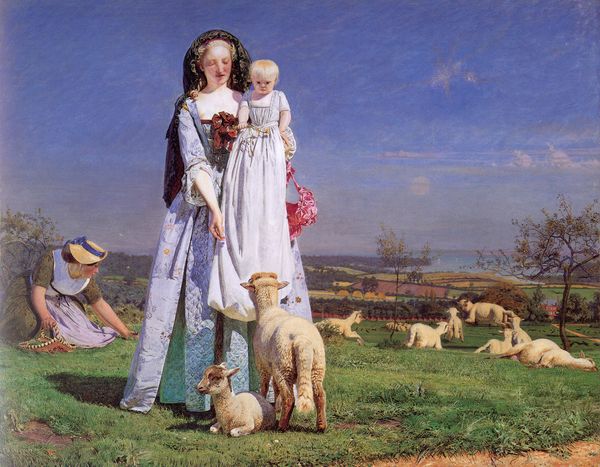
watercolor
portrait
figuration
oil painting
watercolor
romanticism
genre-painting
portrait art
watercolor
Copyright: Public domain
Editor: What a fascinating work this is, inviting a flurry of questions! I'd love to introduce you to William Henry Hunt's watercolor titled, "The Gypsy Toilet". I can only begin to wonder about this particular title’s implications and, of course, its location in that precise instant... Curator, what are your first impressions of this work? Curator: Honestly? A wistful air. The girls, clustered together in the open air, seem suspended between youth and something a little more knowing. Like a single page pulled from an illuminated book and placed into existence. They stand there wrapped within the embrace of uncertainty. Editor: Beautifully said. Looking at the piece through the lens of Romanticism, Hunt really leans into an idealized vision of these figures. Their dress, while suggesting a certain rustic simplicity, is rendered with a delicacy that elevates them beyond the everyday. It certainly romanticizes the 'nomadic life.' Curator: Agreed. Though it's tempered, don’t you think? The palette, that blend of earth tones against the blue sky... there's a grounding sadness woven in with the picturesque. It hints that beneath the surface-level depiction of "gypsy" existence lies something unseen, unheard. Something raw. I imagine myself stepping directly into it. How do you, with your deep dive approach, frame pieces like this? Editor: The term 'Gypsy' itself is deeply problematic of course. The figures, while standing within nature, have an undeniable presence of romantic and idealized imagination and projection, especially the treatment by the Romantics within the Arts & Crafts Movement and larger orientalist fantasies, of the pre-modern moment; these moments certainly seem imbued with colonial undertones, too. Curator: You’re right, I should’ve considered all of that within my approach, as well. They seem ready for adventure and that’s certainly their magic. It might just take us all along to those unexplored frontiers as well. Editor: Precisely. Each piece, like this, requires a dialogue, one constantly revising itself. Curator: And I’m so thrilled to continue our exploration—let's meet again next time.
Comments
No comments
Be the first to comment and join the conversation on the ultimate creative platform.
